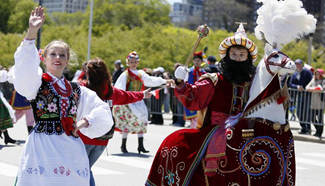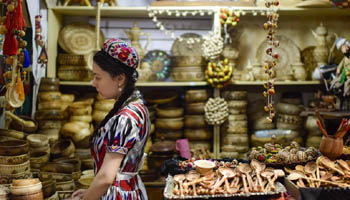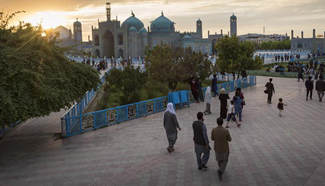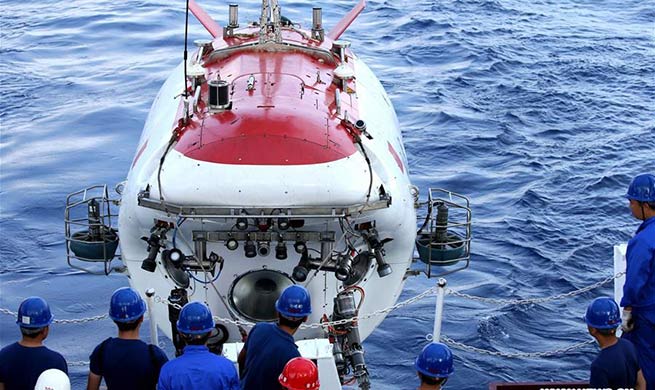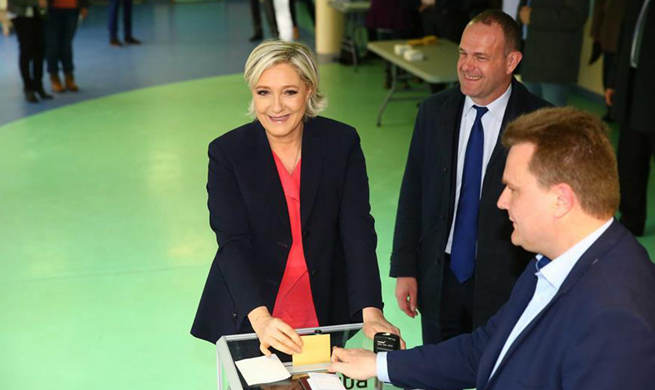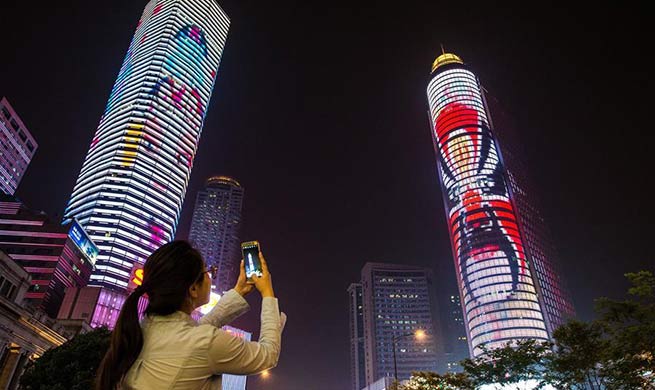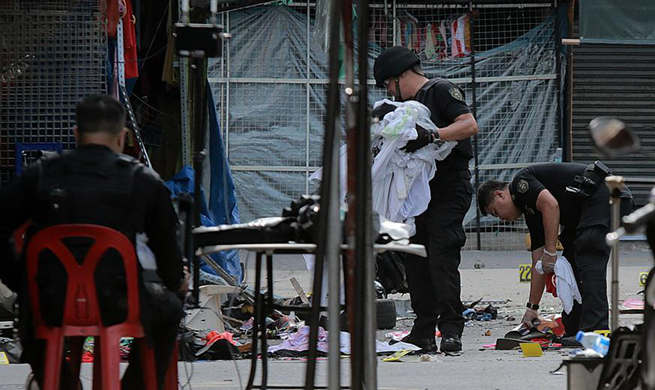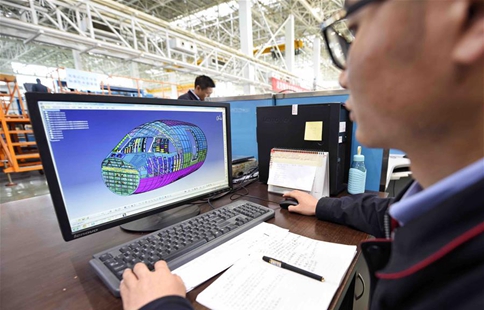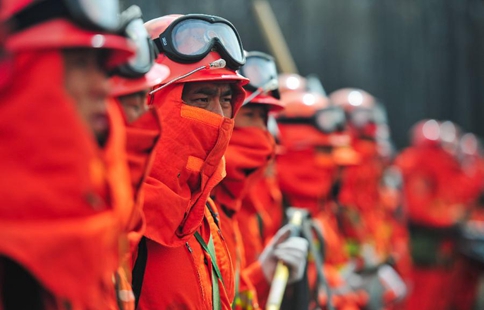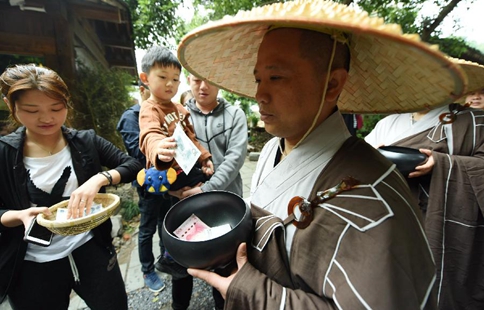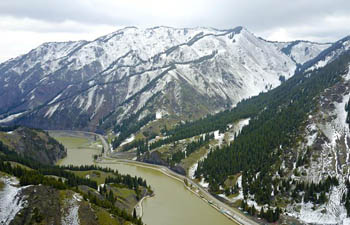by Hummam Sheikh Ali
DAMASCUS, May 8 (Xinhua) -- Safe zones, or de-escalation zones, both names reflect one reality that some areas in Syria have become off limits to both the government and the rebels.
After the Syrian crisis broke out in March 2011, the so-called "popular uprising" against the Syrian government quickly took the shape of foreign countries backing different parties of the conflict to take a slice of the Syrian cake.
The conflict dragged on relentlessly with all observers stressing the need for an international consensus to resolve the crisis, as such international agreement is more crucial than a local one between the warring sides themselves.
All intra-Syria talks have failed to bring a political end to the conflict, which was blamed on the lack of international agreement, particularly an agreement between the United States and Russia.
But for the first time since the Syrian crisis, a concrete plan has been put into play.
In some sense, it seems like delivering chemotherapy to a patient who has been suffering from a malignant illness for more than six years, but the creation of "de-escalation zones" in Syria, analysts say, are likely the most viable way to bring the endless confrontations to an end.
But the question is why now?
The answer, according to analysts, is that the superpowers investing in a proxy war in Syria have apparently come to a conclusion that such a proxy confrontation is dragging for a long time without achieving desired goals.
That's why the proxy war in Syria seems to have hit a dead end, not because the superpowers are backing down, but because they have taken the matters into their own hands to secure their respective interests and possibly to end a humanitarian disaster, by way of the so-called "de-escalation zones" deal between Russia, Iran and Turkey, with Russia and Iran on behalf of the government and Turkey representing the rebels.
Other powers' blessing was also there, such as the acceptance of the United States and other regional allies of the rebels, as well as UN Special Envoy to Syria Staffan de Mistura.
The "de-escalation zones" deal is coupled with a cease-fire that went into effect at midnight Saturday in four identified zones: Idlib Province in northwestern Syria, the central province of Homs, the eastern countryside of the capital Damascus and the southern province of Daraa.
By next month, the guarantors of the deal, or Turkey, Iran, and Russia, will start drawing border lines between the safe zones, which are controlled by the rebels, and government-controlled areas across the country.
Foreign forces are also set to be sent to the country, if not already arrived, to monitor the implementation of the deal.
On a side note, terror-designated groups such as al-Qaida-linked Nusra Front and the Islamic State (IS) group are excluded from any settlement and battles against them will continue, according to the deal.
But what will really happen on ground?
The safe zones are merely cantons where the rebels will retain their control.
The first zone combines Idlib Province with part of the countryside of both Latakia Province and Aleppo Province.
The second one combines areas in the countryside of Homs Province, while the third one is in the Eastern Ghouta countryside of Damascus.
The forth combines areas in Daraa Province in southern Syria and the countryside of Qunaitera in the same region.
Turkey will have control over the safe zone in Idlib, as the rebels there are largely controlled by Ankara.
Saudi Arabia has secured its interests near Damascus, as the rebels in Eastern Ghouta are supported by the kingdom.
Jordan, backed by Israel, will hold sway in Daraa and Qunaitera, while the United States secures its interests through the Kurdish groups in northern Syria, particularly after the Kurdish forces are advancing against the IS in Raqqa Province and the countryside of Deir al-Zour.
As for Russia and Iran, both allies of the Syrian government will surely maintain their interests in Syria in the areas controlled by the government.
Such influence is not on paper, but is becoming real on the ground, another sign that a proxy war is coming to an end with actual players emerging on the ground.
Meanwhile, more U.S. forces are reaching areas under the control of the Kurdish-led Syrian Democratic Forces (SDF).
A day earlier, pan-Arab al-Mayadeen TV released a telegram sent to the rebels in Idlib from Turkey, in which Ankara said Turkish forces will be entering Idlib.
In Daraa and Qunaitera, a report emerged late on Sunday that Jordan is amassing forces near its borders with Daraa, in what appeared to be a preparation to cross over with the help of the Americans.
Some reports said the Jordanian and U.S. forces have actually entered the desert area in the southeastern Syria to support the battle against IS.
Although these reports couldn't be verified independently, previous remarks by Syrian government officials suggested that Jordan is planning an incursion into southern Syria.
With all these developments, the hope remains that even though Syria may not be as united as it used to be, at least for the time being, the violence could decline now that the superpowers are securing their interests and the conflicting parties are being separated on the ground.
Anas Joudeh, a Syrian opposition figure, said the "de-escalation zones" deal could help in achieving "relative de-escalation" in the violence, but noted that the presence of al-Qaida-linked Nusra Front could complicate the matter, because other rebel groups will have to stand in the face of Nusra, with the fact that some of these groups, which are deemed as "moderates", have links with the Nusra.
Russia said the "de-escalation zones" deal will be valid for at least six months, which means this plan will be put to test during the next six months with a high possibility of extending it.




